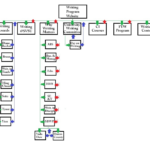Hypothesis:
Exercises that require more involvement will result in individuals within this experiment having a higher heart rate proceeding the exercises, as well as a secondary hypothesis regarding how an individual’s age affects their heart rate through the recorded exercises.
Methods & Materials:
When measuring the individuals in this experiment’s heart rate, we measured their radial pulse by using a 30-second digital stopwatch and counting each beat.
Conclusion:
we conclude that exercise that requires more bodily involvement does result in a higher heart rate. When looking into the age aspect of our study we conclude that age does not have a direct relationship with individuals’ heart rates. We conclude this, with respect to the small sample size within this experiment.
Results:
References:
Deaton, Bethany. Instructables Living. ”How to measure radial pulse.” Instructables. 29, Sept. 2017, from https://www.instructables.com/How-to-Measure-Radial-Pulse/ Baptist Hospital, New England. “How Does Exercise Affect Your Heart, and What Are the Benefits?” New England Baptist Hospital, 17 Feb. 2016, https://www.nebh.org/blog/how-does-exercise-affect-your-heart-and-what-are-the-benefits/. Matelot D, Schnell F, Kervio G, Thillaye du Boullay N, Carré F. Athlete’s bradycardia may be a multifactorial mechanism. J Appl Physiol (1985). 2013;114(12):1755-1756. doi:10.1152/japplphysiol.00307.2013 Böhm M, Reil JC, Deedwania P, Kim JB, Borer JS. Resting heart rate: risk indicator and emerging risk factor in cardiovascular disease. Am J Med. 2015;128(3):219-228. doi:10.1016/j.amjmed.2014.09.016 Schuch FB, Stubbs B. The Role of Exercise in Preventing and Treating Depression. Curr Sports Med Rep. 2019;18(8):299-304. doi:10.1249/JSR.0000000000000620


